Tekniker: applied research
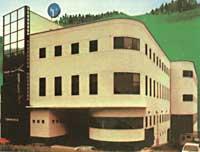
When we have searched for data from the research center we have always found the right guide. In the TEKNIKER research centre D. Francisco Javier García Robles. She holds a degree in Chemical Sciences and a Master in Materials for the Aerospace Industry from the Cranfield Institute of Technology.
As a guide to the visit made at this research center, we had the same person. Therefore, we will summarize the seen and heard in the following lines.
The creation of TEKNIKER must be located in the Eibar and Deba-Ego industry. When the term quality was used in industries in the late 1960-1970's, the Armeri School in Eibar created a small laboratory. This happened in 1967, but over the years, what was a small laboratory grew a lot. As a result, in 1981, TEKNIKER was promoted by Armeri Eskola, the alumni association and a group of industrialists. The year 1982 was very important for this center, since the Basque Government created a legal figure called protected entity.
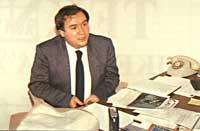
Through this, the research center presents to the Basque Government a series of projects that subsidize their study. Currently there are five entities sponsored in the Autonomous Community of the Basque Country and with the grant obtained from this route, between 25% and 50% of the budget of research centers is covered. The projects that research centres work in coordination with the Basque Government are called general or basic. This type of project cannot be assumed by a mere industrialist, but it is very interesting for the Basque economy.
TEKNIKER initially focused on the area of metallurgy, but at this time the manufacturing technology is the one that most needs. Therefore, CAM (computer-assisted production), machinery diagnosis, simulation, cell development for flexible manufacturing, communications networks for small and medium-sized enterprises, etc. are the most discussed topics.
A hundred employees work in this centre. Industrial engineers, physicists, chemists, mathematicians, industrial teachers and scholars are the ones who carry out the works and for this they have different equipment. The computer is the most abundant element, but the different departments have the most advanced equipment. There are devices to perform metallurgical characterizations, chemical analysis of wastewater, industrial oils and metal alloys, tests of wear and lubrication, and coating of material by physical vapor deposition, among others.
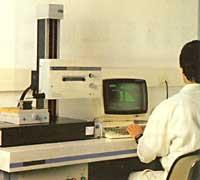
The way to obtain this equipment is that of aid programs opened by the Administration. However, the computer media has been supplied almost entirely by the center itself.
At this moment TEKNIKER participates in eleven European projects. The wealth obtained from this participation is cheaper than ideas, projects that allow establishing direct relations with other European research centers.
In the Basque Autonomous Community, TEKNIKER and four other similar research centres constituted the EITE Coordination Institute. The role of EITE is not only coordination, but also trying to detect and cover the needs of Euskal Herria. Therefore, each research center has specialized and the repetition of the work is partially avoided. However, since work areas are sometimes similar, some competition occurs, but F.J. According to García, the competition is very positive, as institutional dialogue is encouraged.
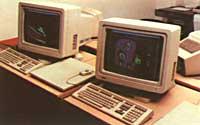
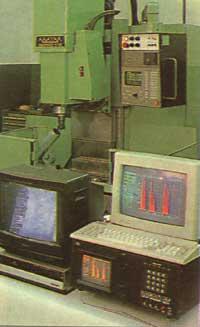
Although the objective and role of the work carried out in TEKNIKER is in the Basque Country, the specialization achieved has led to an increase in applications outside the Basque Country. Somehow, the company that was born to meet the needs of a region has now reached the international level.
Looking ahead, our interlocutor was very optimistic. The future is in manufacturing technology and it is about analyzing products of high added value, so that the industry manufactures and sells these products, that is, of making promoter. As an example, it is worth mentioning the case of the company GOITEK, which was born in the environment of the commercialization of a communications network with different benefits for small and medium enterprises.
Public funding is considered essential to further progress. The determination of its specific weight depends on factors such as the modernization of the Basque industry, the dynamics of new processes, market demand, etc. will be important factors.
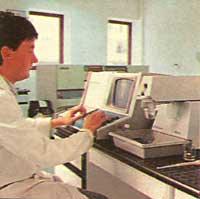
On the other hand, we must not forget that the EIT, fully integrated, employs more than 600 people and, therefore, is and will be a solid foundation to meet the needs of the Basque industry.
When we turned off the booth, we saw different departments of TEKNIKER. F.J. García's words greatly determined the specialized work of those departments. In any case, the role of these departments has been summarized in the attached table throughout this article.
Elhuyar. Science and Technology
Although F.J.'s mission is to make science and technology known in a simple way, Garcia made things much easier for us. Thank you for making the most difficult topics easy.
Tekniker: by departments
Dimensional metrology
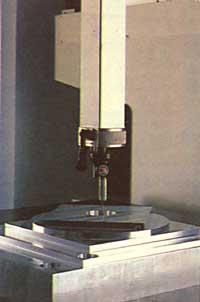
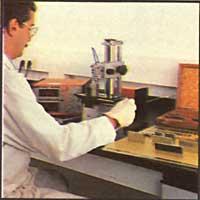
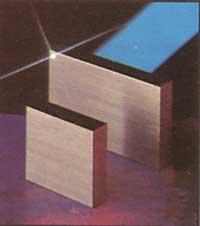
The industrial calibration system of the Spanish Ministry of Energy and Industry approved the TEKNIKER laboratory.
Companies that want a higher level of quality require the calibration of their equipment.
TEKNIKER has the following instrumentation for the provision of services:
- Laser interferometer
- Different types of patterns: longitudinal, angular, etc.
- Optical polygons
- Autocollimator
- Three Dimensional Measuring Machine
- Universal Measuring Machine
- Coordinate measuring machine
- Profile projector
- Profile meter
- Rugosimeter
- Labeler
- Other
Mechanics
The topics covered in this area are mainly four:
- Calculation of structures. The finite element method is
based on a software package made in TEKNIKER that allows you to calculate the usual machine tool elements. This package also allows to work composite structures. - Design of new mechanical elements for machine
tools High-speed machining is possible through new materials, increasing productivity. However, high-speed machining generates serious problems. TEKNIKER analyzes these problems and designs them for machining centers. - Experimental mechanics is

a TEKNIKER tool for conducting experimental mechanical studies. For this purpose, the Fourier analyzer, strain and thermography techniques are used. Thus, the distribution of forces in structures, natural frequencies, modes of vibration, noises, etc. They can be known. - Artificial intelligence The complexity of problems arising in process automation
generates the need for non-algorithmic methods. Therefore, the knowledge bases are the ones that can help solve these problems and TEKNIKER offers its experience at European level.
Materials
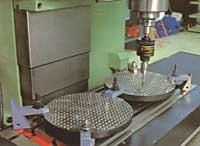
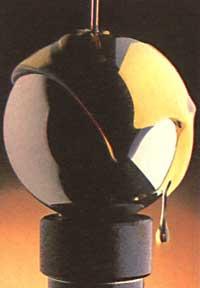
The main topics covered in this area are:
- Tribology is
Tribology, the science of friction, lubrication and wear. In this area, TEKNIKER foresees and diagnoses possible negative effects from erosion. It also includes apparatus for studying the characteristics of lubricants, materials and coatings. - Coatings are
known at TEKNIKER for coating technology because of Lurrina's physical belief. With this type of coatings remarkable improvements in materials are achieved. - Machinability is
the ease offered by a material to be machined. Many machining tests have been carried out due to the requirement of quality control. - Composites were
once a fiction, but today they have become reality. TEKNIKER offers metal-based composite material technology.
Production engineering
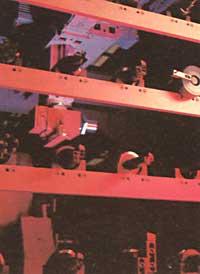
The topics covered in this area are:
- The flexible manufacturing system offers
TEKNIKER expertise in design, management software development and flexible manufacturing systems. One of the best-known flexible manufacturing systems is the Fatronix System. This system consists of four machining centers, a tool manager and automatic parts transport. - The preparation of computer-assisted work (CAPP) The integration of the different phases of
the production process is increasingly necessary, especially the preparation of work, being the most expensive area. In this sense, TEKNIKER offers automatic software to optimize turning and milling. - In CAM
Computer assisted manufacturing, TEKNIKER offers its expertise in machining complex surfaces. - Planning and simulation of manufacturing
systems The aim of these products is to optimize the use of manufacturing systems to achieve an optimal utilization rate of machines and auxiliary elements.
Industrial quality
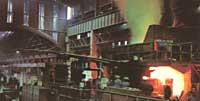
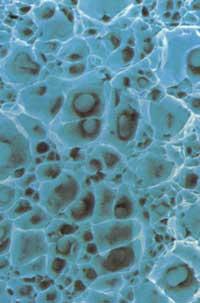
The topics covered in this area are:
- Chemical analyses
are performed at TEKNIKER through chemical, metal, water discharges and industrial industries and oils.
The material with which TEKNIKER counts is the one that allows any metallographic analysis, both qualitative and quantitative. Mechanical and corrosion tests can also be performed at any time.
New products
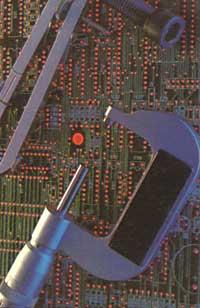
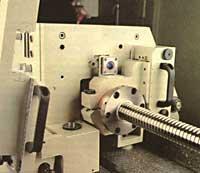
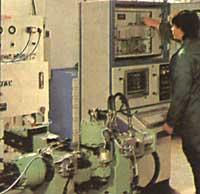
Current competition forces companies to have high value-added products for their survival. In this line, TEKNIKER develops two areas:
- CIM (computer-assisted production) in small and medium-sized enterprises.
TEKNIKER makes networks, programs, etc. available to these companies. necessary for communication between computers and machines and jobs. - Special machines
Many companies need to purchase products that cannot be found on the market. TEKNIKER can design and prepare prototypes to meet the needs of these companies.





